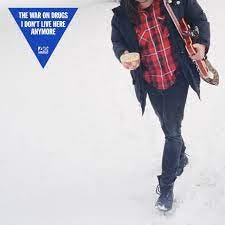Endangered: Songs That Go Places
Yes' Roundabout, Supertramp's Rudy and the vanishing art of suitelike composition
Reactions to the “Roundabout” clip Bill Bruford posted recently on his new YouTube channel (and included here in a rhapsody about Bruford’s music) were interesting. Some people wrote to complain about how tyrannically inescapable classic rock has become, characterizing these old songs as unwelcome nostalgia triggers. Others marveled at the precision execution – and, more generally, what a weird fluke it is that a song like “Roundabout,” with its multiple sections and interludes and abrupt groove changes, became a hit in the first place.
Not trying to be all “better in the old days” here, but on a nuts and bolts level, there’s a qualitative difference between what succeeds today and what reached millions of ears in the ‘70s. The pop and rock “hits” of the present moment are notable for mostly static harmony and a structural uniformity from verse to chorus. Interludes and grand pauses, where everything stops, are rare. As are changes in meter, and extended builds from placid calm to dramatic roar.
These should not be super-exotic things. Yet the suite-like “Roundabout” approach to composition – shared by Genesis and Supertramp, among many others – is somewhat endangered now. It’s something we might want to think about preserving, in some form.
Because as Phish and The War on Drugs and other recent practitioners have shown, these musical devices – drawn from classical music and improvised music and yes, classic rock – can be catalysts for intense creativity. Deploying these devices is challenging; playing in 7/4 has a way of putting bands on high alert. And, correspondingly, these elements can sometimes be challenging to follow. Listening to music is an art, and one of the ways to deepen one’s perception – not to mention receptivity to the unknown – is to follow themes that stretch beyond the two or four bar limits of the common loop. To stay with music that erupts in odd and unexpected ways, that shifts from the steady groove to full upheaval in the space between beats.
After hearing that live “Roundabout,” I thought about one of the songs that wasn’t a hit from Supertramp’s 1974 commerical breakthrough Crime Of the Century. Often cited as an example of prog-lite, the album is a triumph of hooks and musical choreography. At times it feels like every last drum fill was written out.
The most ambitious song on the album is called “Rudy.” It lasts 7:20. It’s a thrill ride that to 2022 ears might seem inordinately intricate. Rococo, even. Grandiose. Intense.
“Rudy” opens with train sounds in the distance, then a rubato piano intro. Verse 1 begins at 00:40, and at 00:51 the rhythm is interrupted by a short, pensive moment of punctuation from piano and synthesizer.
Verse 2 starts at 1:00, but by 1:20 the rhythm thickens and becomes more assertive. Strings enter, offsetting the vocal. By 1:35, a full-throated rock groove erupts.
There’s a big stop-time downbeat at 1:47, bringing with it increased tension. That lasts just ten seconds, then gives way to a guitar solo over the pulse used in the verses. Twenty seconds later, the tempo is cut in half, and we’re suddenly having a wistful piano-bar moment with vocal.
Next comes a whomping prog-rock interlude, which goes from 2:42 until around 3:10, then suddenly the tempo fades and we’re in a train station. A melancholy clarinet theme plays underneath departure announcements. It’s a filmic scene that lasts until 3:55, when a Curtis Mayfield-style rhythm guitar figures moves from the deep background to the forefront. The backbeat returns, the intensity simmers for thirty seconds or so. Strings enter at 4:39, playing a call-and-response game that lasts until the vocals resume at 4:37, and it’s also an exchange between the two lead singers. A “hook” of sorts appears at 5:37 and modulates up a whole step at 5:46. Another film-score interlude follows and then gets swallowed up by ambient train-station sounds around 6:17. The strings return gradually, providing the foundation for a short last-call-at-the-piano-bar half verse and then some stunningly gorgeous orchestral writing for the fade-out.
This is one song.
Why yes, we have a fancy digital suggestion box. Share your favorite Underloved/Overlooked records here: echolocatormusic@gmail.com.
Please consider subscribing (it’s still free!). And…..please spread the word! (This only works via word of mouth!)






